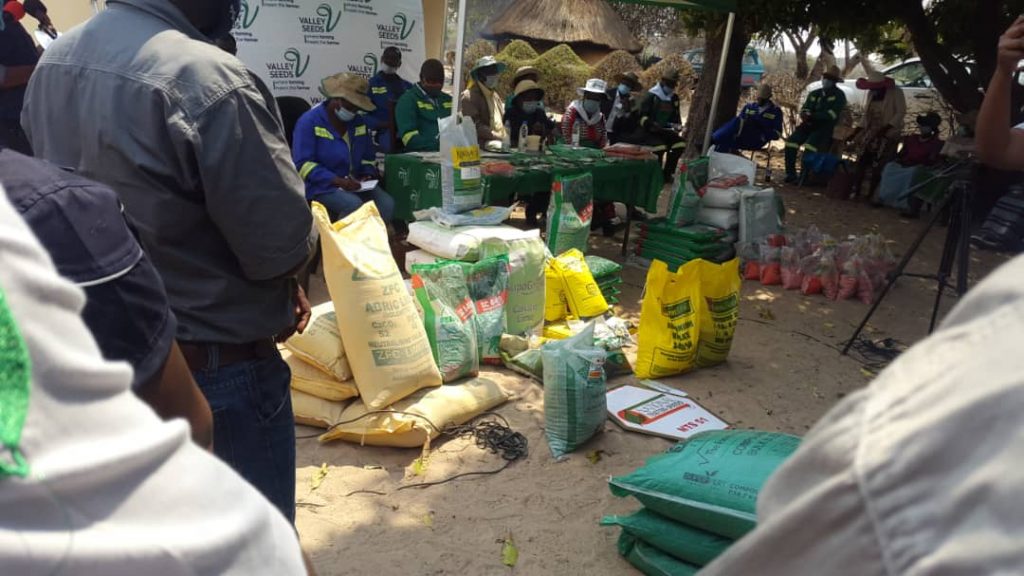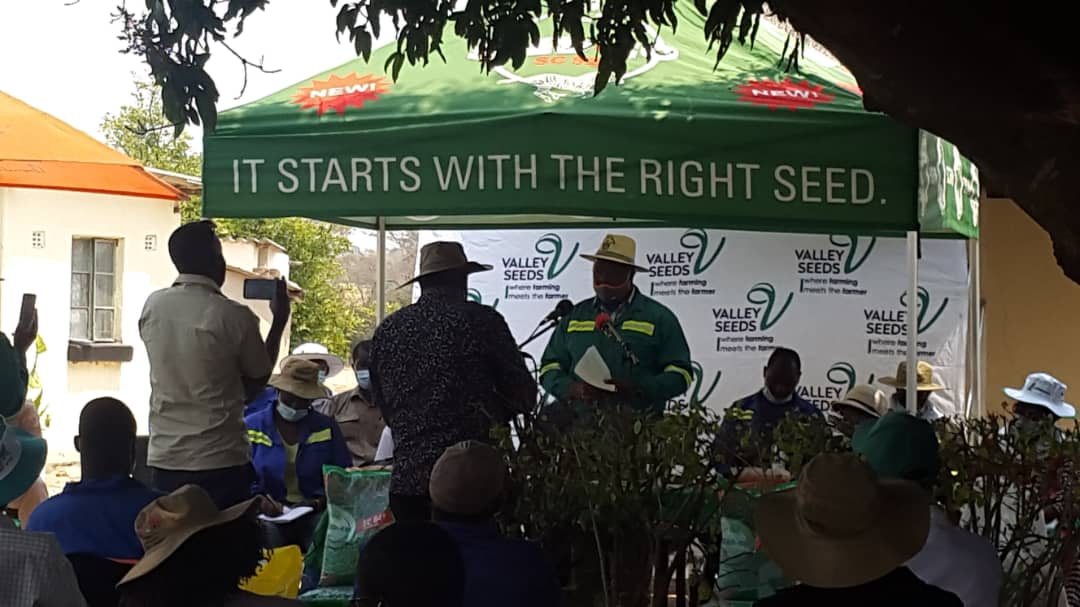The Zimbabwe Plant Breeders Association (ZPBA) and Agritex are promoting the “Good Quality Climate Smart Seeds and Blitz Soil Conditioning under the famous Pfumvudza/Intwasa Demonstration” program being spearheaded by the Ministry of Agriculture.
On 17 September 2020, the Zimbabwe Plant Breeders Association (ZPBA) and AGRITEX hosted a field demonstration event in Ward 4, Mhondoro District.
A first of its kind, the demonstration showcased the benefits of using good quality climate-smart seeds and soil conditioning by liming. Dr John Basera, the Permanent Secretary in the Ministry of Agriculture, Climate, Water and Rural Resettlement, was the guest of honour at the event hosted
under the theme, “Good quality climate-smart seed and lime and under the Pfumvudza concept.”
The ZPBA is an association of plant breeders that strives to ensure that Zimbabwean farmers have access to good quality and climate-smart seeds of various field crops for productive farming, and household and national food security.
The country is faced with a rapid population growth especially the urban community. However, current food production barely enough to feed this growing population is heavily affected by weather and climate change-related challenges such as frequent droughts, excessive heat, new pests, and disease pressures.
Farmers were encouraged to adopt conservation agriculture to reduce the negative effects of climate change. The use of good quality climate-smart seed and liming of the soil was emphasized.
The Pfumvudza concept is designed to:
- Ensure food self-sufficiency and dietary diversity at the household level.
- Climate-proof dry-land smallholder agriculture.
- Enhance crop productivity through the adoption of good agronomic practices that include minimum tillage, mulching, population density
management, fertilization, liming, use of quality climate-smart seed, and general crop maintenance. - Support income generation from surpluses production, and cash crops.
- Inspire the commercialization of smallholder agriculture in the country.
The international maize and wheat improvement centre (CIMMYT) and various seed companies including, Agriseeds, Klein Karoo, Mukushi Seeds, National Biotechnology Authority, National Tested Seeds, SeedCo, Syngenta and Valley Seeds (Pioneer & Pannar) partnered with ZPBA for the event, and showcased and distributed seed samples to farmers to try in their fields.
Breeders work on improving various traits of crops such as adaptability to the production environment, food quality (eg nutrient content, size and colour), industrial/ processing quality etc. ultimately releasing better varieties meeting the needs of farmers, consumers and agro-processing industries.
Use of quality climate-smart seeds is believed to be the ‘core’ of good agriculture practices which come with the following advantages:
- Optimum plant population of a vigorous healthy crop resulting in higher yields.
- Resilience to production stresses such as droughts, pests, diseases, etc.
- Access to nutritious food through bio-fortified crops such as maize, beans, cowpea, and sweet potato that have been released in the country.
- High-quality products for the market earning farmers better income
The event highlighted the need to correct the pH of soils through the liming and the use of fertilizers to increase crop productivity. Repeated cultivation of the same pieces of land overtime was reported to cause soil weakening and lowering of pH.
The government highlighted that it had taken it upon itself to test soil pH for farmers countrywide.
Leading fertilizers and lime manufacturing companies including Chemplex Corporation, FSG (Superfert), Lafarge, Omnia, Windmill, and ZFC also graced the event to promote and ensure easy access to lime and fertilizers by farmers and donated lime and fertilizer packs as well.

Farmers were strongly encouraged to combine the use of good quality seeds of improved varieties with good agronomic practices in order to reduce the yield gap between varietal yield potentials and the actual yields farmers are getting in their fields.






